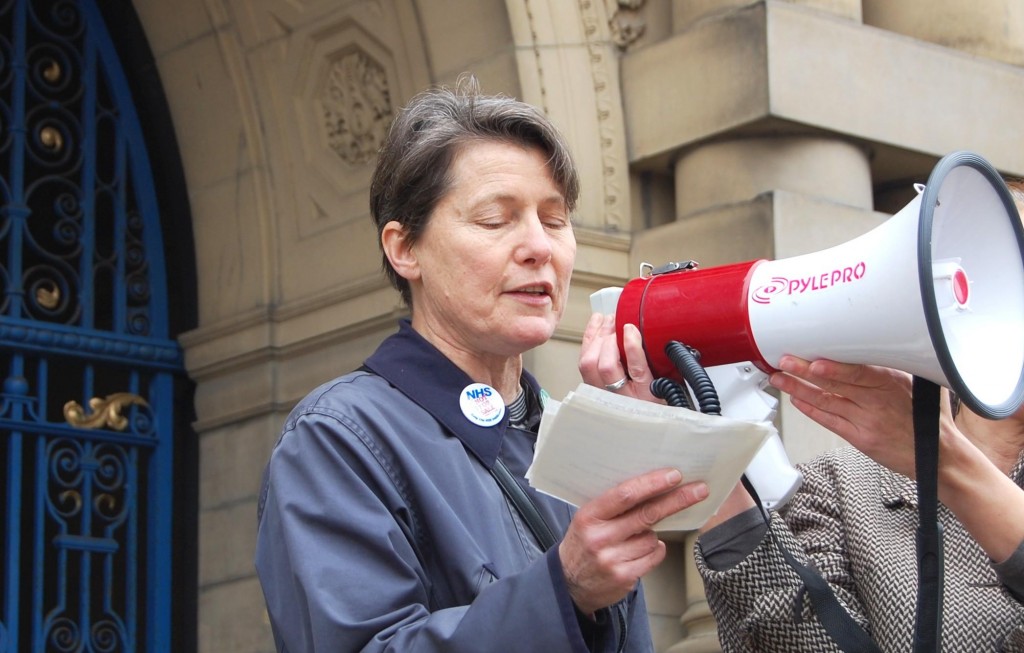 Green councillors are putting a motion to council on October 3rd requesting them to continue to maximise use of the Sustainable Communities Act. Sheffield City Council was the first Council to opt in to the Act. It has been recognised as “excellent” and an example of best practice in Local Works’ Best Practice Guide for its engagement of residents under the act.
Green councillors are putting a motion to council on October 3rd requesting them to continue to maximise use of the Sustainable Communities Act. Sheffield City Council was the first Council to opt in to the Act. It has been recognised as “excellent” and an example of best practice in Local Works’ Best Practice Guide for its engagement of residents under the act.
Cllr Jillian Creasy, who tabled the motion, comments :
“Britain has one of the most centralised governments in the world. We believe that more power should be handed back to local authorities. The Sustainable Communities Act gives councils and local people the power to ask for specific things – for instance to run post offices or use land awaiting development. I hope the council will make use of this opportunity to fight back against top down government.”
For more information please contact Cllr Jillian Creasy
NOTE : The full council agenda for Octiber 3rd is at http://meetings.sheffield.gov.uk/council-meetings/full-council/agendas-2012/agenda-3rd-october-2012. The motion wording follows :
Notice Of Motion Given By Councillor Jillian Creasy
That this Council:-
(a) supports the bottom up process in the Sustainable Communities Act that encourages Councils and their communities to drive the action and assistance that central Government gives to promote thriving local economies and sustainable communities;
(b) notes that the Act enables Councils to make proposals to Government including requests for new powers or a transfer of powers or public money and function from central control to local control;
(c) notes that Sheffield City Council was the first Council to opt in to the Act and that Government agreed to implement one of the Council’s proposals, namely allowing the Council to help plan and run the Post Office network in the City, leading to a 5% growth in Post Office revenue in the City;
(d) notes that Sheffield City Council’s engagement of residents under the Act has been recognised as “excellent” and an example of best practice in Local Works’ Best Practice Guide;
(e) notes that new regulations for the Act made in June 2012 improve the process and make it more favourable for Councils in the following ways :
(i) Councils’ proposals are submitted directly to the Government;
(ii) there will no longer be short listing;
(iii) Councils can submit proposals whenever they are ready as the process is now ongoing;
(iv) there will be a time limit of six months on the Government to consult and try to reach agreement with the Selector (currently the Local Government Association) regarding Councils’ proposals and to then respond to those proposals; and
(v) Councils that choose to submit proposals may now decide how to consult and try to reach agreement with representatives of communities in their areas on what proposals to submit;
(f) notes that the Government has formally invited all Local Authorities to use the Act by submitting proposals;
(g) resolves to request the Cabinet to use the Act by responding to this invitation, engaging in some form of public consultation and submitting proposals for action and assistance from central Government each year for the next three years and to then review the outcome of this activity and consider whether to continue to use the Act; and
(h) further resolves to:
(i) inform the local media of this decision;
(ii) write to local MPs, informing them of this decision; and
(iii) write to Local Works informing them of this resolution to use the Act.

Pingback: Greens propose ‘supermarket levy’ | Sheffield Green Party